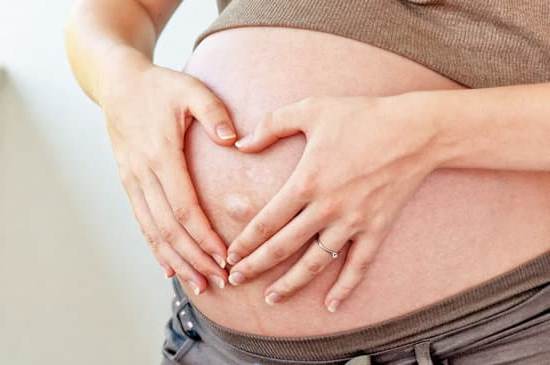Are you wondering how early is too early to take a pregnancy test? Understanding the right time to take a pregnancy test can alleviate anxiety and provide accurate results. Many women are eager to find out if they are pregnant, but taking a test too soon can lead to false negatives and unnecessary stress. In this article, we will delve into the importance of knowing when it is appropriate to take a pregnancy test.
The menstrual cycle plays a crucial role in determining when a pregnancy test can accurately detect pregnancy. Timing is key, as testing too early can result in a negative result even if conception has occurred. By understanding the menstrual cycle and its impact on fertility, women can make informed decisions about when to take a pregnancy test for reliable results.
Recognizing early signs of pregnancy can also influence when a woman decides to take a pregnancy test. Symptoms such as missed periods, nausea, fatigue, and breast tenderness may prompt individuals to test early. However, it is essential to keep in mind that these symptoms can be attributed to other factors as well. Learning about the signs of early pregnancy can help individuals assess whether it is time to take a test or wait for more conclusive results.
Understanding the Menstrual Cycle
The menstrual cycle plays a crucial role in determining when it is appropriate to take a pregnancy test. Understanding the different phases of the menstrual cycle can help women pinpoint the best time to test for accurate results. A typical menstrual cycle lasts around 28 days, with ovulation occurring approximately halfway through the cycle.
Ovulation is the process where an egg is released from the ovary and is available for fertilization. After ovulation, the egg travels through the fallopian tube, and if it is not fertilized by sperm, it will disintegrate. The fertile window, when conception is most likely to occur, is usually around five days before ovulation and on the day of ovulation itself. Once ovulation occurs, the body prepares for either pregnancy or menstruation.
Taking a pregnancy test too early in the menstrual cycle can lead to false negative results. This can happen if implantation of the fertilized egg has not occurred yet, and there are not enough pregnancy hormones (hCG) present in the body to be detected by the test.
It is recommended to wait until after a missed period to take a pregnancy test for more reliable results. Knowing how early is too early to take a pregnancy test can save you from unnecessary stress and disappointment.
| Menstrual Cycle Phase | Timing for Pregnancy Test |
|---|---|
| Ovulation | Wait until after a missed period |
| Fertile Window | 5 days before ovulation and day of ovulation |
Early Signs of Pregnancy
When it comes to early signs of pregnancy, every woman may experience different symptoms. While some women may not notice any noticeable changes in their body until weeks into their pregnancy, others may start noticing subtle signs that could prompt them to take a pregnancy test early. It is essential to be aware of these signs, especially if you are actively trying to conceive or suspect that you might be pregnant.
Here are some common early signs of pregnancy that may indicate it is time to take a pregnancy test:
- Missed Period: One of the most obvious signs that may prompt a woman to take a pregnancy test early is a missed period. If your menstrual cycle is regular and you suddenly miss a period, it could be a strong indicator of pregnancy.
- Breast Changes: Some women may notice changes in their breasts very early on in pregnancy. This can include tenderness, swelling, or darkening of the nipples.
- Fatigue: Feeling more tired than usual even without engaging in strenuous activities can be another sign of early pregnancy. Hormonal changes during the first few weeks of pregnancy can cause fatigue and sleepiness.
If you are experiencing any combination of these symptoms and suspect that you might be pregnant, you may consider taking a home pregnancy test. However, it is essential to keep in mind that the accuracy of the test results can vary depending on how early in the pregnancy you are testing. It’s important to follow guidelines on when to take a pregnancy test for the most reliable results.
Types of Pregnancy Tests Available
When it comes to taking a pregnancy test, one of the crucial factors to consider is the type of test you choose. There are various options available on the market, each with its level of sensitivity in detecting pregnancy hormones. Understanding the differences between these tests can help you make an informed decision on which one to use and when.
Here is an overview of the types of pregnancy tests available:
- Urine-based Pregnancy Tests: These are the most common type of pregnancy tests that can be easily purchased over-the-counter at pharmacies or online. They work by detecting human chorionic gonadotropin (hCG) hormone levels in urine. While some tests provide results as early as 4-5 days before your missed period, others may require waiting until after you have missed your period for accurate results.
- Blood-based Pregnancy Tests: These tests are usually conducted at a healthcare provider’s office and involve drawing blood to measure hCG levels. Blood tests are more sensitive than urine tests and can detect pregnancy earlier, sometimes as early as 6-8 days after ovulation. They are also used to confirm pregnancies and monitor hCG levels in high-risk pregnancies.
- Digital Pregnancy Tests: These tests provide a clear result in words like “pregnant” or “not pregnant” instead of lines or symbols. Digital tests use the same technology as traditional urine-based tests but offer a more straightforward interpretation of results.
Each type of pregnancy test varies in sensitivity and accuracy, so it’s essential to read the instructions carefully and understand when they are most effective for detecting pregnancy hormones. It’s important to note that regardless of the type of test you choose, <strong>how early is too early to take a pregnancy test depends on factors such as your menstrual cycle length, ovulation timing, and hCG hormone levels in your body.
How Pregnancy Tests Work
Pregnancy tests work by detecting the presence of a hormone called human chorionic gonadotropin (hCG) in a woman’s urine or blood. This hormone is produced once a fertilized egg implants in the uterine lining, typically about 6-12 days after conception. The levels of hCG increase rapidly in the early stages of pregnancy, which is why these tests are able to detect it.
This hormone is not typically present in a woman’s body unless she is pregnant, making it a reliable indicator of pregnancy. The sensitivity level of a pregnancy test determines how early it can detect hCG, with some tests being able to detect very low levels and provide results even before a missed period.
One of the most common types of pregnancy tests is the at-home urine test, which can be easily purchased at pharmacies or online. These tests usually involve either dipping a stick into a cup of urine or holding the stick under the urine stream for a few seconds. The test then detects hCG in the urine sample, displaying either one line for negative or two lines for positive.
Blood tests conducted at a healthcare provider’s office are another option for determining pregnancy, as they can detect lower levels of hCG earlier than urine tests. Blood tests are especially recommended for women who have irregular periods or suspect they may be pregnant very early on.
It is important to note that how early is too early to take a pregnancy test depends on various factors such as when implantation occurs and the sensitivity of the test being used. Taking a test too soon after conception may result in a false negative if hCG levels are not yet high enough to be detected.
Generally, it is advisable to wait until after your missed period to obtain more accurate results with an at-home urine test. However, blood tests conducted by healthcare providers can often detect pregnancy much earlier, sometimes even before a missed period occurs.
| Pregnancy Test Type | Earliest Detection Time |
|---|---|
| At-Home Urine Test | As early as 6-12 days after conception |
| Blood Test | As early as 6-8 days after conception |
Factors That Affect Test Accuracy
When it comes to taking a pregnancy test, there are several factors that can affect the accuracy of the results. One of the most important factors to consider is the time of day that you take the test.
It is generally recommended to take a pregnancy test in the morning when your urine is more concentrated, as this can help ensure more accurate results. This is because early in the day, hCG levels (the hormone detected in pregnancy tests) are typically at their highest concentration.
Another factor to keep in mind is hydration levels. Drinking excessive amounts of liquids before taking a pregnancy test can dilute your urine and potentially affect the results. On the other hand, being dehydrated can also impact the accuracy of the test. It’s important to strike a balance and avoid either extreme when preparing to take a pregnancy test.
Additionally, certain medications can interfere with the results of a pregnancy test. Medications containing hCG or fertility drugs may lead to false positive results on some tests. It’s essential to consult with your healthcare provider if you’re unsure about how your medication could affect the accuracy of a pregnancy test. Being aware of these various factors can help ensure that you get reliable results when determining whether you are pregnant or not.
Consulting With Healthcare Providers for Accuracy
If you have concerns about how these variables might be affecting your test results, it’s always best to consult with a healthcare provider. They can offer guidance on how to optimize conditions for taking a pregnancy test and provide insight into how specific medications or health conditions may impact its accuracy. Healthcare providers may also recommend confirming positive results with blood tests for added certainty.
Taking Precautions for Accurate Results
To avoid any potential pitfalls that could skew test outcomes, try following some simple guidelines like carefully reading and adhering to instructions provided with the pregnancy test kit, using first-morning urine whenever possible, staying adequately hydrated without overdoing it before testing, and being cautious about taking medications that may interfere with results.
By taking these precautions into consideration, you can enhance the accuracy of your home pregnancy testing experience and achieve more reliable outcomes regardless of when you choose to take the test.
Recommended Timing for Taking a Pregnancy Test
Best Time to Take a Pregnancy Test
When it comes to determining the best time to take a pregnancy test for accurate results, it is essential to understand how the menstrual cycle plays a crucial role. The timing of taking a pregnancy test is directly related to the production of human chorionic gonadotropin (hCG) hormone, which is only produced once a fertilized egg attaches itself to the uterine wall. It typically takes about 6-12 days after conception for hCG levels to be detectable in urine.
Early Morning Testing
Many healthcare professionals recommend taking a pregnancy test early in the morning as this is when hCG levels are most concentrated in the urine. Due to the fact that hCG levels are more concentrated after several hours without drinking fluids, it is wise to take the test upon waking up before consuming any liquids. This can increase the accuracy and reliability of the results.
Testing Too Early
It is important to note that testing too early can result in false negative results, causing unnecessary stress and disappointment. Taking a pregnancy test immediately after intercourse or ovulation may lead to inaccurate outcomes since there may not have been enough time for implantation and subsequent hCG production.
It is always recommended to wait until you miss your period or at least one week after ovulation for more reliable results. Remember, patience is key when it comes to taking a pregnancy test for accurate outcomes.
Emotional Implications of Early Testing
Many women experience a range of emotions when it comes to taking a pregnancy test, especially if they choose to do so early. The anticipation, hope, anxiety, and uncertainty that accompany the days leading up to taking a pregnancy test can be overwhelming.
For those who are actively trying to conceive or are concerned about a potential pregnancy, the urge to take a test as soon as possible can be strong. However, it is essential to recognize the emotional toll that early testing can have.
One of the biggest emotional challenges of taking a pregnancy test too early is the possibility of receiving a false negative result. While some tests claim to detect pregnancy before a missed period, the reality is that levels of the hormone human chorionic gonadotropin (hCG) may not be high enough in the early stages of pregnancy to be detected by some tests.
This can lead to disappointment and confusion for individuals who had their hopes up based on an inaccurate result. As such, it is crucial to strike a balance between being eager to know and waiting for an appropriate time when the results are more likely to be reliable.
In addition to the disappointment that can come with a false negative result, early testing can also trigger heightened anxiety and stress for individuals. The constant cycle of hopeful anticipation followed by possible letdown can take a toll on one’s mental well-being.
It is important for individuals who are considering taking a pregnancy test early to understand the potential emotional implications and prepare themselves for various outcomes. By practicing self-care, seeking support from loved ones, and managing expectations realistically, individuals can navigate this emotional rollercoaster with more resilience and grace.
Conclusion
In conclusion, knowing when it is appropriate to take a pregnancy test can save women unnecessary stress and disappointment. Understanding the menstrual cycle and early signs of pregnancy can help determine the best time to take a test. It is essential to be aware of the types of pregnancy tests available and their varying sensitivities, as well as how they work to detect pregnancy hormones in the body.
Factors such as hydration levels, medication, and the time of day can impact the accuracy of a pregnancy test, so it is crucial to follow recommended guidelines for taking a test. It is also important to consider the emotional implications of early testing and prepare for possible outcomes. By waiting for the right timing to take a pregnancy test, women can avoid false results and prevent unnecessary worry or disappointment.
Ultimately, patience and understanding of one’s body are key when deciding when to take a pregnancy test. Being well-informed about the factors that affect test accuracy and emotional readiness can make the process less overwhelming. Remember, it’s always best to consult with a healthcare provider if there are any doubts about when is the right time to take a pregnancy test.
Frequently Asked Questions
How Soon Will a Pregnancy Test Read Positive?
A pregnancy test can read positive as early as 7-10 days after conception, which is about a week before your missed period. However, it’s best to wait until after you’ve missed your period to ensure accurate results.
Can You Detect a Pregnancy at 1 Week?
Detecting a pregnancy at just 1 week is highly unlikely because implantation usually occurs around 6-12 days after ovulation, followed by hCG hormone release. By the time a week has passed, the levels may still be too low to detect.
How Early on Can a Test Detect Pregnancy?
Most home pregnancy tests can accurately detect pregnancy about 2 weeks after conception, which is usually around the time of your expected period. However, some sensitive tests claim to detect hCG hormone earlier, sometimes as early as 6-8 days post ovulation.

Welcome to my fertility blog. This is a space where I will be sharing my experiences as I navigate through the world of fertility treatments, as well as provide information and resources about fertility and pregnancy.





